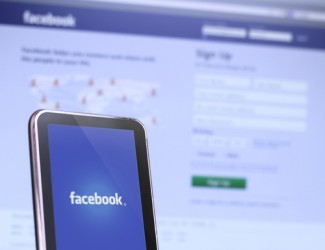Judge tosses suits claiming Facebook is liable for aiding terrorism

Image from dolphfyn / Shutterstock.com.
A federal judge in Brooklyn, New York, has dismissed two lawsuits that claimed Facebook should be liable for allowing terrorists to use its platform to advance violence.
U.S. District Judge Nicholas Garaufis ruled on Thursday, report Reuters, Bloomberg and the Verge, which linked to the opinion (PDF).
One of the suits was brought by about 20,000 Israeli citizens who feared terrorist violence. The other was brought by victims and family members of past terrorist attacks by Hamas.
The plaintiffs had claimed that Palestinian terrorism organizations used the social media platform to incite and organize attacks.
Garaufis ruled that the plaintiffs who feared future violence lacked standing because they couldn’t point to an injury, traceable to Facebook, that was different from that faced by the public at large. The plaintiffs’ claimed harm, Garaufis said, relies on “multiple conjectural leaps,” including that they will be the victims of an as-yet unknown terrorist attack.
Garaufis ruled that the other plaintiffs are barred from recovery by the Communications Decency Act, which shields internet service providers from liability based on third-party content.
A lawyer for the plaintiffs in both suits, Robert Tolchin, said he plans to appeal. He had sought to hold Facebook liable under an anti-terrorism law, and he told Reuters that the court didn’t reconcile the clash between statutes.
He also disagreed with Garaufis’ interpretation of the Communications Decency Act.
“We’re certainly appealing,” Tolchin told Bloomberg. “We’re not suing them over the content of any of their postings but because of the networking platform they provide to terrorists, which to us is providing terrorist support.”
Facebook was represented by Kirkland & Ellis, which was chastised by Garaufis last September for sending a lone associate to a hearing. Garaufis ordered the firm to “scrounge up a partner” for the next hearing.
Typo in last paragraph corrected on May 19.



